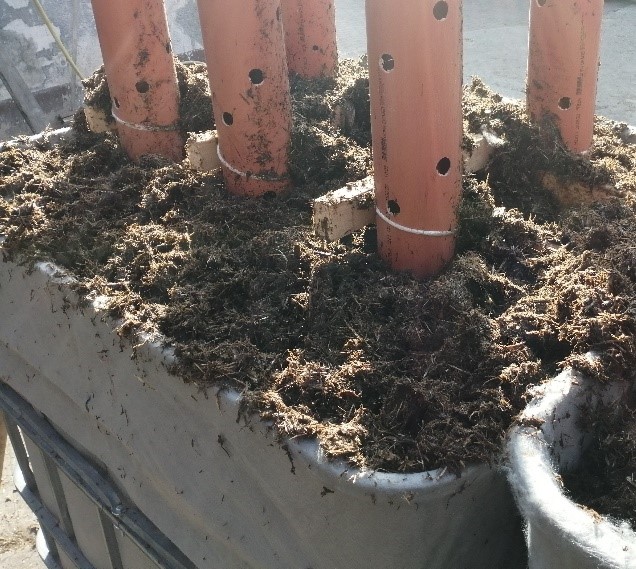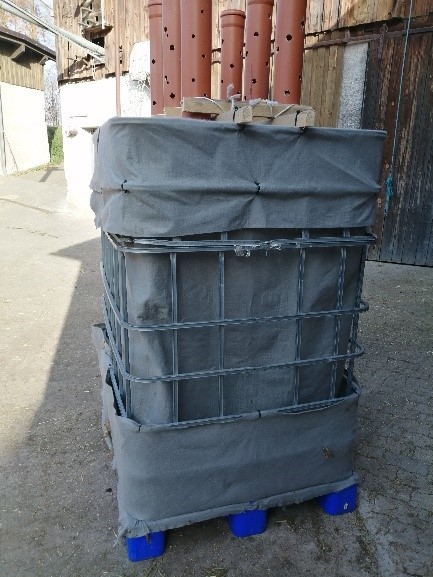What was the challenge/ problem addressed?
On most agricultural land, the soil microbiome is weak and fungi in particular suffer under current soil management practices. According to Dr. David C. Johnson (New Mexico State University), the founder of the “Johnson-SU compost” in his experiments in New Mexico shows that the Johnson-SU compost method can save a large part of the known NPK fertilization and pesticides. Therefore, the project idea is to test the extent to which Johnson-SU compost promotes a revival of microbiome under the regional conditions and thus leads to improved plant health. This project involves the various development concepts which aims at creation of an active and diverse soil food web, resulting In:
- An improvement in soil structure through increased plant growth and active soil life.
- Reduction of mineral fertilisers and pesticides while maintaining yield levels.
- Stabilisation of yields, especially in extreme years.
- Enrichment of humus in the soil, also in connection with conservation tillage.
How did you solve the problem?
To solve the problem, the project will conduct the following activities:
- Analysis and further development of methods for the production of compost extract, compost and its storage
- Planning of different application techniques and procedures
- Development of an overview of different forms of application of Johnson-Su Compost
- Development of test Parameters for soil, leaf and harvested material
- Developing the design and structure of a guide for the practical production of Johnson-Su compost, determining its preparation and application
What are the success factors in solving the problem?
Is the cooperation with the farmers, as the plot trials are to take place on the farmers’ fields under normal operating conditions.Advisors working together with farmers and partners in order to achieve the objective of the project.
Unexpected fails, if any
That not everything you have planned can be realized.
Lessons learned
Structured work and cooperation with the Operational Group members is important. Working together with farmers,engaging them at every stage of the project enhances the smooth running of the project and achievement of its main objective which is testing the extent to which Johnson-SU compost promotes a revival of microbiome under the regional conditions and thus leads to improved plant health.
For the success of the project, there is need for frequent meetings among the operational group members.
Conducting seminars for farmers to enable them to learn more about the whole concept of the project and clearly stating the main objective of the project before the project commences, as this prevents confusion and diversion from the project objective. It also enables farmer to be aware of what they expect out of the project and the roles they have to play within the project.
It is important to note down and elaborate the role of each person taking part in the project at the beginning to facilitate easy running of the project activities and reduces conflict of interest among the members.
What role does the advisor or advisory service play within the practical case?
The role of the external consultant is very important. With their experience, they play a major role in the success of the project. Especially in our example with regard to the selection of the different studies. And in the practical test setup, what needs to be taken into account, also regarding public relations. They are in the fore front in proposing what should be done at every stage of the project and also in spreading the idea to farmers of interest.
Can your approach be transferred and/or adapted for other innovation challenges and regions?
Yes
For sharing the experience on the good practice, please contact Niklas Zölch, niklas.zoelch@maschinenringe.de, Telefonnummer: 09631/6002256

